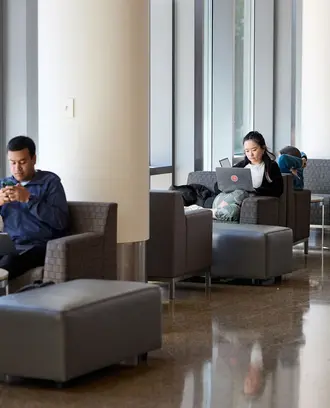Has the Pandemic Made Businesses More Resilient?
For companies to thrive in the post-COVID future, they must learn to be omnidirectional, Yossi Sheffi says in his new book “The New (Ab)normal: Reshaping Business and Supply Chain Strategy Beyond COVID-19.” Sheffi is director of the MIT Center for Transportation and Logistics as well as a professor of engineering systems and civil and environmental engineering.
A global supply chain expert, Sheffi shows that during the pandemic, a number of key survival strategies turned out to be winning practices for a post-quarantined marketplace. One of the lessons learned was being open to new business outlets. Many companies that had never considered opening online stores, for example, survived and even thrived through e-commerce, whether that was achieved individually or with the help of a platform like Amazon Marketplace. In addition, Sheffi says, nimble businesses are using off-the-shelf cloud computing and mobile apps to level the playing field between small and large companies. He also emphasizes the importance of connectedness over self-reliance. Forging new connections, he notes, has given companies an agility that will endure long after the world reopens for in-person business.
When Abnormal Becomes the New Normal
In “The New (Ab)normal,” Sheffi draws on interviews with executives, media resources, and research from his previous books “The Resilient Enterprise” and “The Power of Resilience” to illustrate how companies actually become more resilient when they are challenged with sudden uncertainty.
The book is divided into three sections—the first devoted to outlining how companies struggled to keep up with continually changing rules of the road. The second section looks at the crisis through a supply chain risk-management lens and shows how companies can create organizational immune systems that will enable them to navigate large-scale disruptions.
The third section deals with the new normal, exploring how life—and the marketplace—have been changed forever. Consumer fears about contagion combined with government mandates that require businesses to create safe zones for workers and customers have changed the face of most organizations one way or another. And remote work appears to be here to stay. That fact changes who can work where, giving companies the ability to recruit talent from any corner of the globe.
Not all pandemic changes, therefore, are negatives, but all require leaders to rethink their organizations from the bottom up—and the top down.
Other perspectives
Over at MIT Sloan’s Operations Research Center, faculty and students also are contributing to efforts aimed at mitigating the negative impact of the pandemic. Find out what they’ve been working on.



